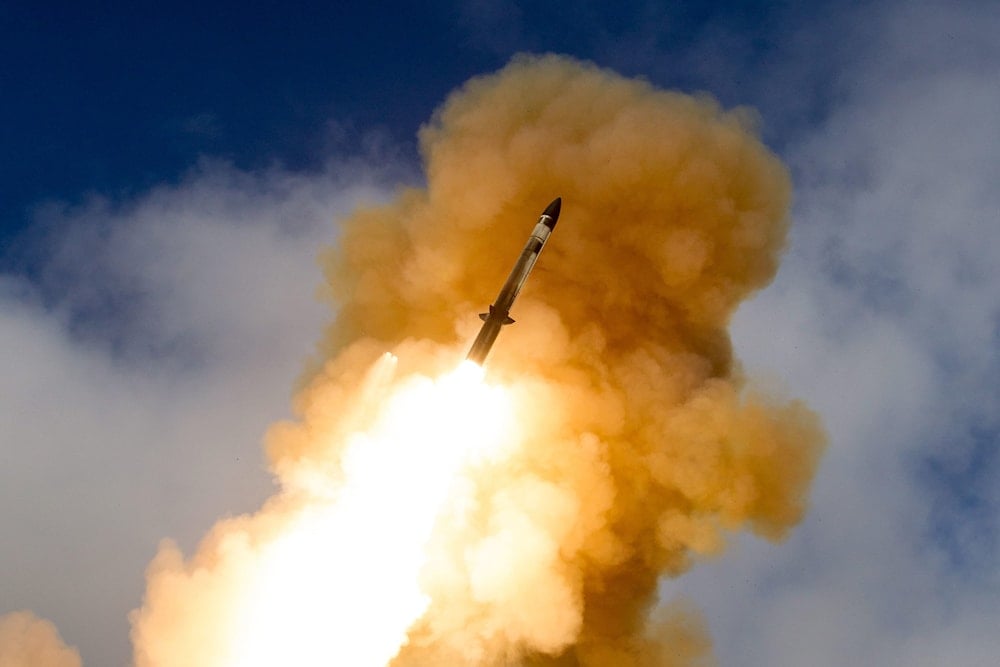US, Japan to develop anti-hypersonic missile defense system
Kyodo News says that the two allies plan to finalize the strategic project by the 2030s.
-

A successful live test fire of a Standard Missile-3 (SM-3) Block IIA from the Point Mugu Sea Range, San Nicolas Island, California, June 6, 2015. (US Army)
The United States and Japan plan to invest more than $3 billion in a collaborative effort to develop a new kind of missile that can intercept hypersonic weapons, according to a report from the Japanese Kyodo News on Thursday, which cited an official from the US Missile Defense Agency.
The two allies plan to finalize the project by the 2030s, with Japan investing $1 billion in the Glide Phase Interceptor project, the official stated.
Read more: In a first, Japan deploys anti-ship missile systems near China's coast
This will be the second joint missile development effort between the US and Tokyo, following the Standard Missile-3 Block 2A, which is designed to intercept ballistic missiles.
Hypersonic missiles fly at speeds ranging from five to 25 times the speed of sound, some of which can change trajectory mid-flight, thereby diminishing the efficacy of conventional anti-ballistic air defense systems.
According to Kyodo News, the missile is intended to intercept hypersonic missiles while they are in their most susceptible glide phase, just before re-entering the atmosphere from space. The US is enhancing detection and tracking capabilities by developing a network of small, highly accurate satellites, as per the report.
Read more: Japan, US strengthening operations to counter China 'influence
The news agency reported that the new missile would be installed on US warships and Japan Maritime Self-Defense Force destroyers that are equipped with the Aegis missile defense system.
US President Joe Biden and Japanese Prime Minister Fumio Kishida agreed to the development in August 2023 before a trilateral summit with their South Korean counterpart, Yoon Suk-yeol, at Camp David near Washington.
54,000 US military personnel are currently based in Japan, which is already increasing defense to the NATO standard of 2% of GDP by 2027, and claims China poses the "greatest strategic challenge" to its security, with the DPRK being the second.
Read more: Philippines, US, Australia, Japan to hold drills in South China Sea

 2 Min Read
2 Min Read








